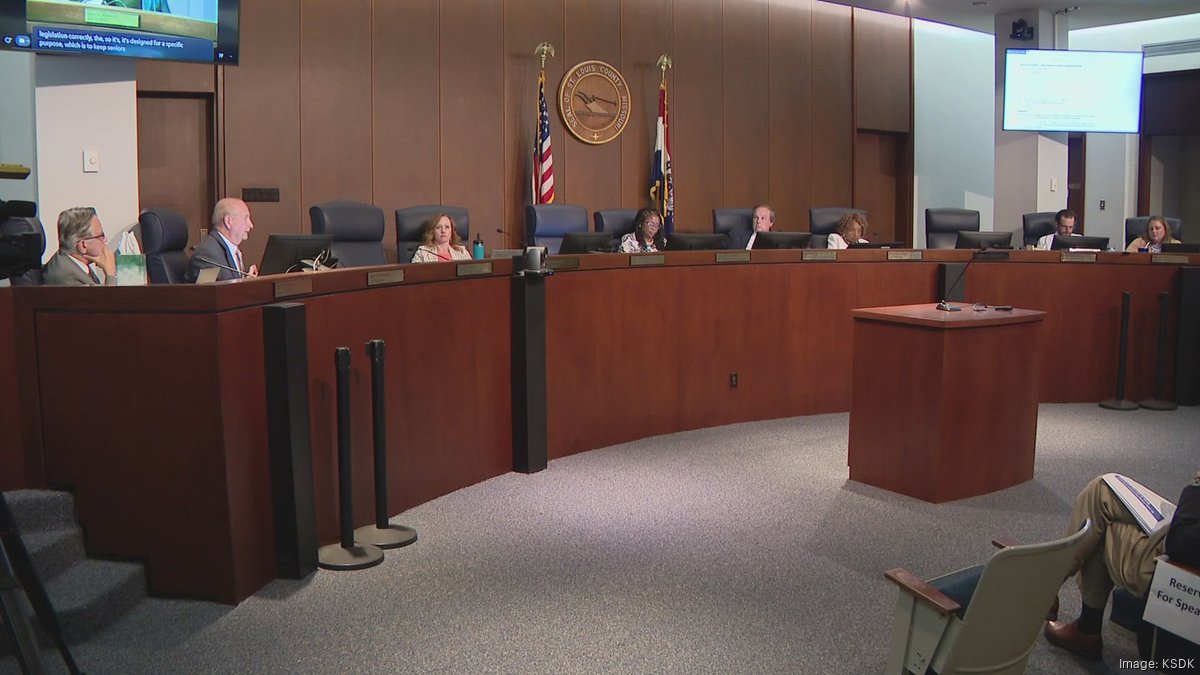St Louis County Property Tax: Navigating the complexities of property taxes in St. Louis County can feel like trying to decipher hieroglyphics, but don’t worry, we’ve got you covered. This guide breaks down everything you need to know, from understanding your assessment to finding available exemptions and paying your bill. Whether you’re a seasoned homeowner or a first-time buyer, we’ll help you make sense of this crucial aspect of homeownership in the Lou.
We’ll cover the nitty-gritty details of how property tax rates are determined, the different components that make up your tax bill (school, county, city—the whole shebang), and how property valuations impact your bottom line. We’ll also walk you through the process of appealing your assessment if you think something’s off and explore various payment methods, highlighting their pros and cons.
Plus, we’ll delve into available tax exemptions and abatements to help you potentially lower your bill. Think of this as your ultimate survival guide to St. Louis County property taxes.
Understanding St. Louis County Property Tax Rates
Property taxes in St. Louis County are a significant financial commitment for homeowners. Understanding the intricacies of how these taxes are levied and calculated is crucial for responsible budgeting and financial planning. This section will break down the different tax rates, their components, and how they are applied to your property.
Property Tax Rate Variations Across St. Louis County
Property tax rates in St. Louis County aren’t uniform; they vary considerably based on location and property type. Areas with higher-valued properties or those providing more extensive services (like better schools) often have higher tax rates. Residential properties typically face different rates than commercial or industrial properties. For example, a home in a wealthy suburb like Ladue might have a significantly higher tax rate than a home in a more rural part of the county.
This variation is due to differences in local government budgets and the assessed valuation of properties within each jurisdiction.
Components of a Property Tax Bill, St Louis County Property Tax
Your St. Louis County property tax bill is composed of several key components. These generally include: school district taxes (often the largest portion), county taxes, city taxes (if applicable, as some areas are unincorporated), and potentially other smaller levies for special districts like libraries or parks. The proportion of each component varies depending on your property’s location and the services provided by each governing body.
For instance, a property located within a high-performing school district will likely have a higher school tax portion than a property in a district with less funding.
Example Property Tax Rate Calculation
Let’s illustrate a simplified calculation. Assume a property has an assessed value of $200,
000. The combined tax rate for the relevant jurisdictions is 2.5% (this is a hypothetical example; actual rates vary significantly). The property tax would be calculated as follows: $200,000 x 0.025 = $5,000. This $5,000 would then be broken down into the individual components (school, county, city, etc.) according to the established percentages for that specific location.
Property Assessment and Valuation in St. Louis County
Accurate property assessment is fundamental to fair taxation. Understanding the methods used and the process for appealing assessments is crucial for homeowners. This section will detail the assessment process and provide guidance on handling disagreements.
Property Valuation Methods
St. Louis County employs a variety of methods to assess property values, primarily relying on a combination of comparative market analysis (looking at recent sales of similar properties), income capitalization (for income-producing properties), and cost approaches (estimating the cost to replace the property). The chosen method depends on the type of property and the available data. The county assessor’s office aims to ensure valuations are consistent and reflect current market conditions.
Comparison of Property Valuation Methods
| Method | Description | Advantages | Disadvantages |
|---|---|---|---|
| Comparative Market Analysis | Compares the subject property to recent sales of similar properties. | Relatively straightforward, relies on market data. | Can be challenging if comparable properties are scarce or differ significantly. |
| Income Capitalization | Estimates value based on the property’s potential income. | Appropriate for income-producing properties. | Requires accurate income and expense projections. |
| Cost Approach | Estimates value based on the cost to replace the property. | Useful for new or unique properties. | Can be difficult to account for depreciation and obsolescence. |
Appealing a Property Assessment
Homeowners who believe their property’s assessed value is inaccurate can appeal the assessment. The appeal process typically involves submitting documentation supporting the claim, potentially including professional appraisals. The county assessor’s office will review the appeal and may adjust the assessment if warranted. If the appeal is unsuccessful, further appeals may be possible through the Board of Equalization.
Paying St. Louis County Property Taxes
St. Louis County offers several convenient options for paying property taxes. Choosing the most suitable method depends on individual preferences and circumstances. This section Artikels the available payment methods and provides a step-by-step guide for online payment.
Methods for Paying Property Taxes
Property taxes can be paid via several methods: online through the county’s website, by mail using the provided remittance slip, or in person at designated locations. Each method has its own advantages and disadvantages, which will be detailed below.
Online Property Tax Payment
- Visit the St. Louis County website and navigate to the tax collector’s section.
- Locate the online payment portal. It usually involves entering your property identification number or account number.
- Select your payment method (credit card, debit card, or e-check).
- Review the payment details and confirm. You will likely receive an electronic confirmation.
- Keep a copy of the confirmation for your records.
Comparison of Payment Methods
Paying online offers convenience and immediate confirmation. Mail payment is a traditional method but lacks the immediate confirmation of online payment. In-person payment allows for immediate interaction with county staff but requires travel and may involve longer wait times.
Tax Exemptions and Abatements in St. Louis County
Source: bizj.us
Several tax exemptions and abatements are available to qualifying St. Louis County homeowners, potentially reducing their tax burden. Understanding eligibility criteria and application procedures is vital for taking advantage of these benefits.
Types of Property Tax Exemptions
St. Louis County offers various tax exemptions, including those for senior citizens, veterans, and individuals with disabilities. Specific eligibility requirements vary depending on the type of exemption. For instance, senior citizen exemptions might have age and income limitations, while disability exemptions require documentation of a qualifying disability.
Tax Exemption Eligibility and Application
Each exemption has a specific application process, often involving completing forms and providing supporting documentation. These forms are typically available on the county assessor’s or tax collector’s website. It’s crucial to carefully review the requirements for each exemption to ensure eligibility and a successful application.
Summary of Tax Exemptions

Source: connatix.com
| Exemption Type | Eligibility Criteria | Benefits | Application Process |
|---|---|---|---|
| Senior Citizen | Age and income limitations (vary by program) | Reduced property tax assessment | Application form and supporting documentation (income verification, proof of age) |
| Disability | Documentation of qualifying disability | Reduced property tax assessment | Application form and medical documentation |
| Veteran | Military service records and other criteria (vary by program) | Reduced property tax assessment | Application form and military service records |
Impact of Property Taxes on Homeowners in St. Louis County: St Louis County Property Tax
Property taxes significantly influence home affordability and housing market trends. Understanding this relationship helps homeowners make informed decisions and anticipate potential financial impacts.
Property Taxes and Home Affordability
Higher property tax rates can reduce home affordability, particularly for first-time homebuyers or those with limited incomes. The overall tax burden, relative to income, is a critical factor in determining housing affordability. A substantial increase in property taxes can strain household budgets and impact purchasing power.
Obtain access to maine justice gif to private resources that are additional.
Impact of Tax Rate Changes on Homeowners
Changes in property tax rates directly affect homeowners’ budgets. An increase can lead to higher monthly expenses, potentially requiring adjustments in other spending areas. Conversely, a decrease can provide financial relief and potentially boost disposable income. For example, a 1% increase in the tax rate on a $300,000 home results in an additional $3,000 annual tax burden.
Property Values and Tax Burdens
There’s a direct correlation between property values and property tax burdens. Higher property values generally result in higher taxes, even if the tax rate remains constant. This means that increases in property values, while potentially beneficial in terms of equity, can also lead to increased tax payments. Conversely, a decline in property values can lower tax payments but may also indicate broader economic concerns.
Resources and Assistance for St. Louis County Property Taxpayers
Several resources are available to assist St. Louis County homeowners with understanding and paying their property taxes. This section provides contact information and details about available services.
Contact Information and Services
The St. Louis County Assessor’s Office and the Tax Collector’s Office are primary resources for property tax information and assistance. Their websites provide detailed information on tax rates, assessments, payment methods, and exemptions. They also offer phone support and in-person assistance.
Frequently Asked Questions
- Q: Where can I find my property tax bill? A: Your property tax bill is typically mailed to the address associated with your property. You can also access it online through the county’s website.
- Q: How do I appeal my property assessment? A: The process for appealing your property assessment is Artikeld on the county assessor’s website. It usually involves submitting documentation supporting your claim.
- Q: What are the different payment options for property taxes? A: You can pay your property taxes online, by mail, or in person at designated locations.
- Q: What types of tax exemptions are available? A: St. Louis County offers various tax exemptions, including those for senior citizens, veterans, and individuals with disabilities. Eligibility criteria vary by program.
Closing Summary
Understanding St. Louis County property taxes is key to responsible homeownership. While the process might seem daunting at first, by understanding the different components of your tax bill, the valuation process, and available exemptions, you can effectively manage this significant expense. Remember, resources are available to help you navigate any challenges you encounter. So, take a deep breath, grab a coffee (or a beer!), and conquer your St.
Louis County property taxes!



